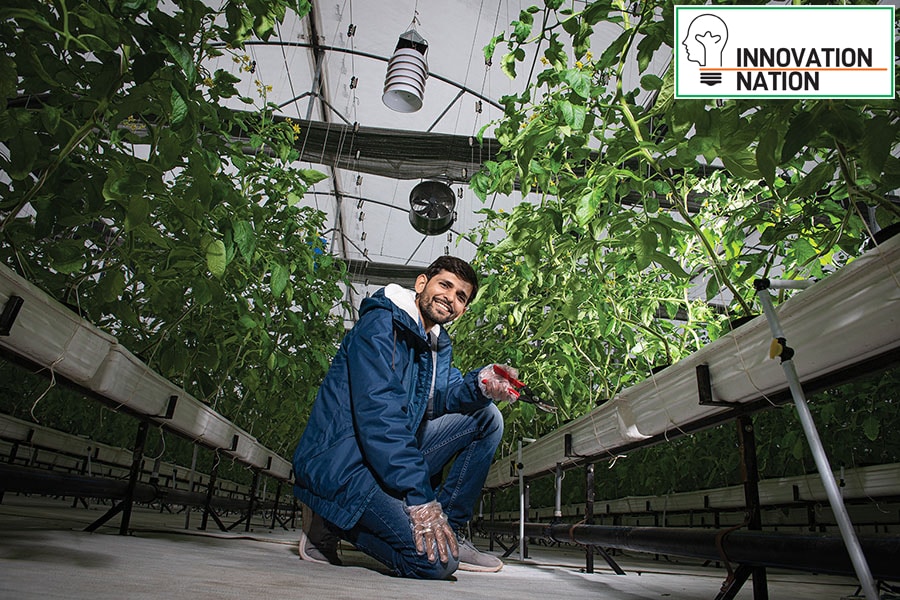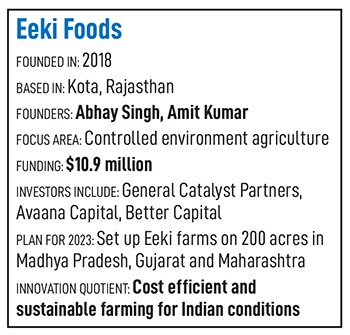
Eeki Foods: Hydroponic veggies at mandi rates
With an innovative polymer composite material used to make containers for the hydroponics, doing away with coolers or chillers, Eeki Foods grows three times the yield of conventional farming, by using 80 percent less water
 Amit Kumar, co-founder, Eeki Foods
Image: Amit Verma
Amit Kumar, co-founder, Eeki Foods
Image: Amit Verma
Abhay Singh and Amit Kumar have been friends from their first week at IIT-Bombay in 2009. They started Eeki Foods in 2018, and, for the first three years, focussed their efforts on researching and developing their own version of hydroponics, on a 10,000 sq ft plot. They’re now in the process of scaling from five acres currently to 40 acres in a couple of months, and 200 acres by the end of the year.
They offer chemical-free vegetables—tomatoes, cucumber, green chillies, etc—at prices that are competitive in comparison with the ‘mandi rates’. And the vegetables are grown sustainably.
At the core of Eeki’s innovation is a polymer composite material used to make the containers in which the plants are grown sans soil or coco peat. They’ve figured out how to maintain the right “root zone temperatures and humidity” to be able to grow vegetables even in regions like Rajasthan, where the company is headquartered, and where summers can be extremely hot and winters biting cold.
 Also read: Step into the future: A taste of the innovations brewing in India
Also read: Step into the future: A taste of the innovations brewing in India
Singh and Kumar further eliminated other energy-hungry infrastructure—such as coolers or chillers and blowers—used in hydroponics systems in farms in rich countries overseas. In the long term, they expect to do away with the polyhouse—plastic sheets enclosure that protects their plants.
“We get much of the energy through solar panels, grow three times as much as the yield of conventional farming, and use 80 percent less water,” says Singh.








